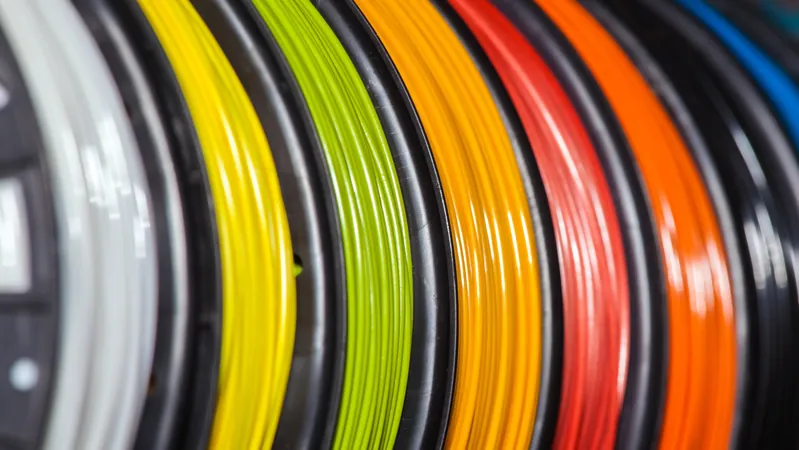
Shocking New Study Raises Concerns About the Cancer Risks of 3D Printing!
2024-10-14
Author: Wei
Recent Concerns in 3D Printing
Recent advances in technology often come with hidden dangers, and 3D printing is no exception. While we tend to focus on the obvious risks like fires from overheating components, a recent study has shifted the spotlight toward a more insidious threat: the particulates emitted during the printing process and their potential link to cancer.
The Study Behind the Concerns
Conducted by researchers CheolHong Lim and DongSeok Seo, this groundbreaking study was prompted by troubling reports of rare cancer cases among STEM educators in South Korea who frequently used 3D printers in their teaching. The investigation aimed to discern whether long-term exposure to particulates from common 3D printing materials, specifically thermoplastic polymers like PLA (Polylactic Acid) and ABS (Acrylonitrile Butadiene Styrene), could have carcinogenic effects.
Research Methodology
The methodology was meticulous. Researchers simulated printing environments by heating ABS and PLA to their respective extrusion temperatures, subsequently collecting the emitted particulates for detailed analysis. They then introduced these particulates to a cell line derived from laboratory mice, evaluating their cytotoxic effects and conducting a comet assay—a test that detects DNA damage by observing the tail-like shapes formed by damaged cells.
Findings of the Study
While the study found no significant DNA damage linked to either PLA or ABS, it also highlighted that a lack of DNA damage does not rule out other forms of cellular disruption. The researchers employed cell transformation assays to monitor potential cancer-related morphological changes in cells exposed to the particulates. Alarmingly, neither material was found to be explicitly carcinogenic, but the results suggest a notable impact on the metabolic pathways of the cells.
In fact, gene expression analysis revealed that out of 147 cancer-related genes studied, 113 exhibited alterations compared to control samples—a compelling indicator that both plastics influence cellular behavior in ways that could be precursors to more serious concerns. Moreover, the increased glucose metabolism observed in treated cells hints at the metabolic shifts often seen in malignant tumors.
Implications for 3D Printing Enthusiasts
So, should you be worried about your hobby? The authors of the study are cautious in their conclusions, stating that this research does not definitively prove 3D printing causes cancer. Nonetheless, the findings indicate a clear link between exposure to 3D printing materials and certain cellular changes associated with carcinogenesis. More research is needed to determine the real-world implications of these results.
For those who enjoy 3D printing at home, this study serves as a timely reminder to take precautionary measures. Perhaps it’s wise to ensure proper ventilation in your workspace—crack a window or invest in an air filtration system as you pursue your creative projects. Stay safe and informed as you embrace the fascinating world of 3D printing!




 Brasil (PT)
Brasil (PT)
 Canada (EN)
Canada (EN)
 Chile (ES)
Chile (ES)
 España (ES)
España (ES)
 France (FR)
France (FR)
 Hong Kong (EN)
Hong Kong (EN)
 Italia (IT)
Italia (IT)
 日本 (JA)
日本 (JA)
 Magyarország (HU)
Magyarország (HU)
 Norge (NO)
Norge (NO)
 Polska (PL)
Polska (PL)
 Schweiz (DE)
Schweiz (DE)
 Singapore (EN)
Singapore (EN)
 Sverige (SV)
Sverige (SV)
 Suomi (FI)
Suomi (FI)
 Türkiye (TR)
Türkiye (TR)